
Blog
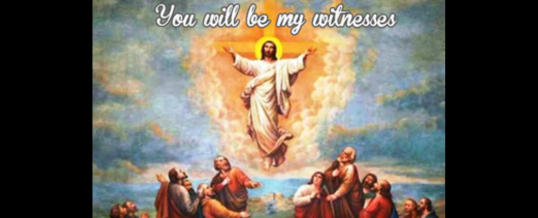
I’ve always felt that today’s feast, the Ascension, only makes sense in the light of next Sunday’s feast, Pentecost. If Ascension is about the great leaving of Jesus, then Pentecost is about the great return of Jesus. Or, as Jesus said in last Sunday’s gospel passage, “I am going away, and I am coming to you” (Jn. 14:28). To which I always want to ask, “Jesus, are you coming or are you going? Because this kind of talk is …
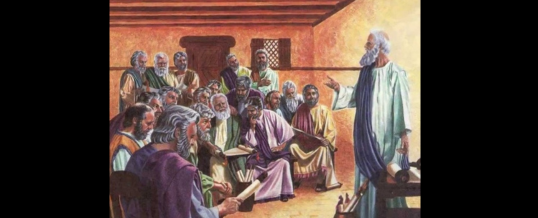
I realize that, for you people in the pews, it’s more difficult to recall anything you heard in the first or second reading. What’s a lot easier to remember is the Gospel reading only because it was the last reading you heard, and the “Jesus stories” seem to be simpler to get into. Personally, I’ve always preferred the gospel stories about Jesus over the stories in the Book of Revelation about dragons with seven heads and ten horns.

During my almost 28 years of being a priest, although it’s rare, this has happened to me more than once. Other people, who are not priests, have told me that they have had almost identical experiences. It has to do with visiting people—either in their homes or in the hospital—who are very close to death. While still conscious and able to mumble a few words, they would, apparently see right through me and talk to a person behind me. …
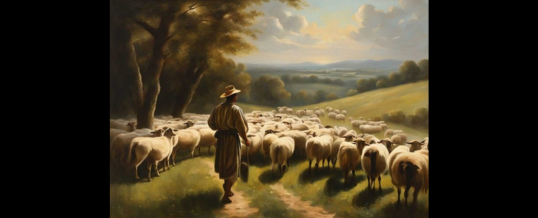
If you were ever having a bad day, a bad week, a bad month, or even a bad year, read this gospel passage that we just heard, and meditate on it. It’s not long, but it offers one of the most comforting messages in the entire Bible. Jesus says that we, the sheep, will never perish. Nor will we, the sheep, ever be snatched out of his hand. And if that isn’t comforting enough, the very next line goes …

…in the breaking of the bread
The Resurrection of Jesus is the central event in the life of the Church. It’s so important that we must spend 50 days celebrating it, right up until the Feast of Pentecost (June 8th this year). One of the classic “Resurrection stories” is the stories we’ve tentatively titled: The Disciples on the Road to Emmaus (Lk. 24: 13-35). In this story the resurrected Lord appeared to two dejected disciples who …
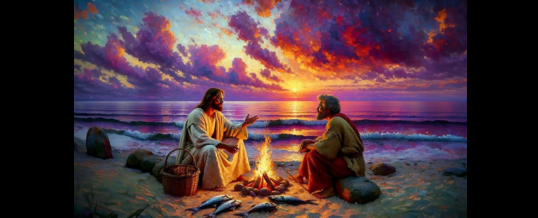
In the resurrection stories—and there’s a lot of them–the Risen Jesus is never recognized straight out. Something has to happen, and then the people finally get it that it’s the Risen Jesus in their midst. I doubt I would have fared any better than those people did back in Biblical times. Underneath candle sticks, incense, fancy vestments and ornate church buildings, what people are hungering for today is the same thing they were hungering for 2000 years ago—an experience …
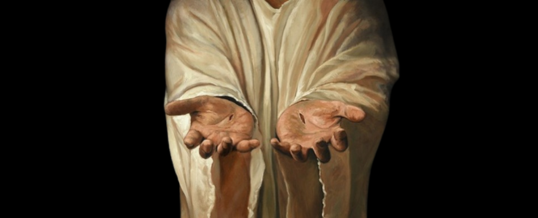
History hasn’t always been kind to Thomas even though he brought the gospel to India, was martyred for that stubborn faith of his, and became a saint. We tend to still call him “Doubting Thomas.” Other people’s reputations get rehabilitated in ways that Thomas’ didn’t. For instance, Peter, denied knowing Jesus not once, not twice, but three times, yet we don’t call him “Denying Peter.” We call him Prince of the Apostles. Likewise, Paul persecuted Christians and was present …

As I get older, my appreciation for Mary Magdalene grows as well. She is the first to encounter the Risen Lord. I guess somebody had to be the first; somebody had to have that honour. It’s her struggle with faith and how she stays in the game that really impresses me. She is so genuine. I can relate to her on so many levels. My own faith journey, on a good day, is three steps forward and two steps …

That last line of the gospel, describing the central event in our faith—the resurrection–seems a little anticlimactic. It read: “Peter got up and ran to the tomb; stooping and looking in, he saw the linen cloths (burial shroud) by themselves; then he went home, amazed at what had happed.” He just went home. It sounds like Peter shrugged his shoulders, and said to himself, “I guess he’s not here. I might as well just go home, have a beer …
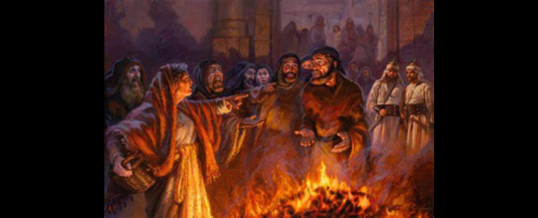
Today’s passion reading is full of contrasts. I suppose if the name Good Friday is to point us ultimately to something good, there’s going to have to be a lot of contrasts to the lies, violence, betrayal, whipping, cruelty, and even murder that dominate today’s gospel reading. I have to believe that a fundamental goodness must still live in contrast to endless shouts to “Crucify him.” I have to believe that truth, as inconvenient as it is at times, …